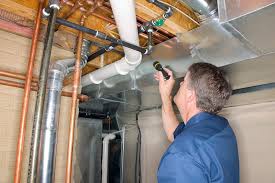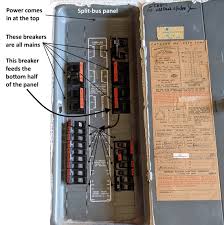Electrical Permit Basics
An electrical permit is required for most electrical work, whether you or your contractor is installing a new item or repairing or replacing an existing item. A permit is the first step in ensuring your installation conforms to safety codes and standards.
Who buys the permit?
Whoever is performing the electrical work is responsible to obtain a permit before starting the work. You cannot use a permit someone else has purchased. For example: Someone you’ve hired asks you to purchase a permit for the work they are doing on your property. This is against the law, and the permit is not valid.
You must request inspection prior to covering any electrical work, no later than 3 business days after completing the work or 1 business day after any part of the installation has been energized, whichever occurs first. Failure to request an inspection may result in civil penalties.
Certain projects do not require a permit. They include:
Travel trailers.
Plug-in household appliances.
The like-in-kind replacement of lamps; a single set of fuses; a single battery smaller than 150 amp hour; contactors, relays, timers, starters, circuit boards, or similar control components; one household appliance; circuit breakers; single-family residential luminaires; up to five snap switches, dimmers, receptacle outlets, thermostats, heating elements, luminaire ballasts with an exact same ballast; component(s) of electric signs, outline lighting, or skeleton neon tubing when replaced on-site by an appropriate electrical contractor and when the sign, outline lighting or skeleton neon tubing electrical system is not modified; one ten horsepower or smaller motor.
For the purposes of this section, “circuit breaker” means a circuit breaker that is used to provide overcurrent protection only for a branch circuit, as defined in NEC 100.

YOUR GUIDE TO THE NEW REGULATIONS FOR ELECTRICAL SAFETY STANDARDS
The new regulations will apply to new tenancies from 1 July 2020 and to existing tenancies from 1 April 2021. Landlords must have the electrical installations in their properties inspected and tested by a person who is “qualified and competent”, at least every five years. Landlords have to provide a copy of the electrical safety report to their tenants, and to their local authority if requested. Breaches of the regulations could result in financial penalties of up to $30,000.
Tenancies covered by the regulations
The new regulations will apply to new tenancies from 1 July 2020 and to existing tenancies from 1 April 2021, including assured shorthold tenancies, houses in multiple occupation (HMOs) and licences to occupy. Exceptions to the regulations include social housing, lodgers, those on a long lease of seven years or more, student halls of residence, hostels and refuges, care homes, hospitals and hospices, and other accommodation relating to healthcare provisions.
Legal obligations of landlords under the regulations
Landlords have a legal obligation to make sure the electrical installations in their rented properties are safe
Under the regulations, they must:
Ensure that national standards for electrical safety are met, which are set out in the 18th edition of the ‘Wiring Regulations’.
Ensure that electrical installations in their rented properties are inspected and tested by a qualified and competent person at least every five years.
Obtain a report from the person conducting the inspection and test which gives the results and sets a date for the next inspection and test.
Supply a copy of this report to the existing tenant within 28 days of the inspection and test, new tenants before they move into the premises and any prospective tenant within 28 days of receiving a request for the report.
Supply the local authority with a copy of this report within seven days of receiving a request for a copy.
Retain a copy of the report to give to the inspector and tester who will undertake the next inspection and test.
Where the report shows that remedial or further investigative work is necessary, complete this work within 28 days or any shorter period if specified as necessary in the report.
Supply written confirmation of the completion of the remedial works from the electrician to the tenant and the local authority within 28 days of completion.
Inspections and inspectors
Inspections will test the ‘fixed’ electrical parts of the property, like the wiring, the socket-outlets (plug sockets), the light fittings and the fuse box will be inspected. This includes permanently connected equipment such as showers and extractors. The regulations do not cover electrical appliances, only the fixed electrical installations
The inspector will check whether:
any electrical installations are overloaded
there are any potential electric shock risks and fire hazards
there is any defective electrical work
there is a lack of earthing or bonding – these are 2 ways of preventing electrical shocks that are built into electrical installations.

Electrical Inspections
The goal of the Electrical Inspection Bureau is to enforce the safe installation of electrical wiring and equipment and to avoid the danger of electrical shock and fire. Inspectors work in conjunction with electrical contractors and building owners to ensure all buildings meet
The Electrical Bureau is responsible for a variety of inspections. Our primary function is to inspect all electrical installations and to check that they are installed in an approved manner to ensure public safety. The Bureau responds to complaints of code violations and assures that they are corrected. We also conduct annual inspections of nursing homes, day care centers, electrical signs, and buildings defined as Public Places of Assembly. In addition, the Bureau inspects fire alarms, and life safety emergency systems in a variety of buildings and institutions, to ensure code compliance and safety.
Q: Can owners do their own electrical work?
A: No. Due to the potential for electric shock or fire hazard, only Electrical Contractors licensed by the City can perform electrical installations.
Q: Can an owner obtain an electrical permit?
A: The licensed electrical contractor completes the required permit application, along with the supervising electricians signature and license number.
Q: As a tenant, who do I call if I have electrical violations that the landlord will not repair?
A: Please give as much detailed information as possible, including a daytime phone number so that the inspector can contact you to arrange a date and time for an inspection
Assessments: Electrical
performs routine remote and physical inspections on electrical work and electrical equipment in commercial, industrial, or residential premises. Field Safety Representatives are primarily responsible for performing inspections on work completed by licensed contractors. If a safety officer has identified an aspect of your work that doesn’t comply with regulations, you must fix it and notify the safety officer with a declaration for assessment.
To request an assessment, complete our Electrical Contractor Authorization and Declaration Form. Once we receive your form, our safety officers will review the information and determine the appropriate next step, which can be one of the following options:
Waive the inspection: we accept the permit holder’s declaration of compliance and do not perform a remote or physical inspection. This means no inspection will be performed and no certificate of inspection will be issued.
Schedule a physical inspection: if a high hazard has been identified or is suspected, a safety officer will arrange to physically attend the site to perform the inspection. A certificate of inspection will be issued to the permit holder upon completion of the physical inspection.
Schedule a remote inspection: a safety officer performs the inspection without physically attending the site. To carry out a remote inspection, they will request evidence of one or more of the information types listed below. Alternatively, you can contact your local safety officer to arrange a time to walk through the installation via live video conferencing tools. A certificate of inspection will be issued to the permit holder upon completion of the remote inspection.
Since every permit and assessment has its own unique considerations, we cannot advise exactly what evidence will be required prior to receiving a request for inspection (declaration form). However, there are certain things you might be able to expect.
When you should submit a declaration for assessment
Many projects are complex, and may experience safety hazards at different stages of work. Technical works with permit holders every step of the way to help ensure the work being done is safe and compliant with regulations. You should declare each stage of work mentioned below, if applicable to you.
You must not do any of the following unless the regulated work has been inspected or the inspection has been waived:
Conceal any portion of the rough wiring
Connect power to the electrical supply system
Work on the next phase of the electrical work if an inspection is required before proceeding
Project Guide For Electrical Work
This guide is intended to provide you an overview of the permitting process for the following areas of electrical work for the interior and exterior of your home:
New or relocated lights and outlets
Service upgrade
No permits are needed to replace like-for-like existing fixtures. For information on the permitting process for the installation of solar panels, see the project guide for solar panels. For information on lighted signs, see the guide for all signs.
Who Will Be Doing the Work?
Decide whether you plan to complete the project yourself or hire a licensed contractor to complete the job for you.
Do It Yourself
You may need to pass a Home owners exam to demonstrate proficiency in specific trades in order to get a permit to do the work yourself. You will also need to meet a set of requirements established
Contractor
Use the Contractor license search to see if your contractor has obtained a contractor’s license from the City